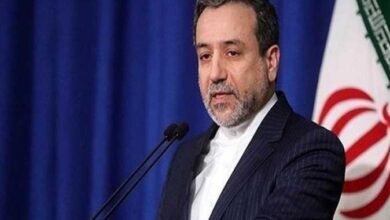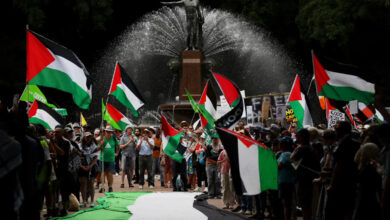The Muslim Brotherhood, Egypt’s largest opposition group, has accused Arab leaders of succumbing to American pressure to accept the secession of Southern Sudan in the upcoming 9 January referendum.
“US President Barack Obama is putting pressure on Arab and African leaders to support the unjust American policy in Sudan. Arab leaders responded immediately to American pressure, as evidenced by the quick trip by Egyptian, Libyan, and Mauritanian presidents to Sudan,” said Supreme Guide Mohamed Badie in his weekly address on Thursday.
“This trip was surely not about the preservation of Sudan’s unity, but rather an endorsement of the separation and an attempt to implement American directives.”
Egyptian and Libyan leaders held negotiations in Sudan last week to discuss post-referendum arrangements.
According to Badie, US and Israeli plans to partition Sudan extend beyond the secession of Southern Sudan to include Darfur.
“Partitioning the Arab and Islamic world into smaller is a goal of the American and Zionist administrations,” said Badie.
Arab regimes are not concerned with collective security or protection against foreign attacks, he added.
Badie also said that Southern Sudan is of great strategic value for Egypt, because it adds geographic reach to it and that an independent Southern Sudan would become a base for “Zionists”.
The Islamist leader also echoed other Egyptian voices by suggesting that the greatest threat to Egypt’s national security is centered around the distribution of Nile water.
“This is especially true given Egypt’s population increase and fixed water supplies,” said Badie.
The issue of South Sudanese secession has been a contentious one for Egyptian officials as Sudan remains a key Egyptian ally in on-going disputes with Nile Basin countries over water shares.
A divided Sudan, Egypt fears, can compromise Egyptian water security interests and further tilt the balance of power in favor of upstream countries who want increased control over the Nile waters.
Ethiopia, which is at the helm of efforts to re-negotiate water shares, has recently accused Egypt of supporting domestic Ethiopian insurgents to leverage control over the Nile dispute, a charge that Egypt has flatly denied. Ethiopia is the source of 85 percent of the Nile's river water, though Egypt receives a lion’s share of the water according to a 1929 agreement signed with the British government. Upstream states have criticized the agreement as a relic of colonialism.




